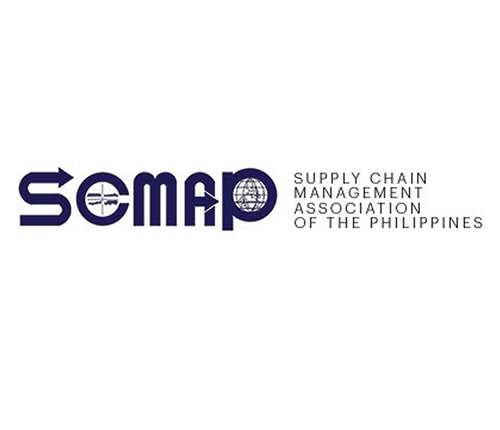Understanding the Role of Trust in Supply Chain and Infrastructure
Trust is the linchpin holding complex supply chains and large infrastructure projects together. Without it, collaboration halts, innovation stalls, and efficiency suffers. Recent revelations about questionable practices in infrastructure projects have cast a shadow, highlighting how fragile trust can be and how it impacts the broader logistics landscape.
The Weight of Distrust in Infrastructure Development
Imagine critical flood control constructions failing or a newly renovated bridge collapsing. These are not just isolated engineering setbacks; they echo deeply through the public’s faith in the systems that support everyday transport and logistics. When infrastructure projects face allegations of corruption or poor workmanship, skepticism creeps in, triggering a domino effect that disrupts related sectors—including freight delivery, haulage, and transport management.
Real-World Impact
- Delays and Downtime: Transport routes get disrupted, affecting shipment schedules.
- Increased Operational Costs: Companies invest more in risk mitigation and alternative routing.
- Hesitance in Collaborations: Partners second-guess data sharing and cooperative logistics ventures.
Breaking Down the Barriers to Supply Chain Collaboration
The heart of any supply chain’s success is collaboration, but this needs trust, especially when sensitive information comes into play. Operational data, logistics schedules, and inventory levels are critical to share, but the fear of data theft or misuse can make companies hold their cards close to their chest.
Legal Foundations Are Important But Not Enough
Legal documents like non-disclosure agreements (NDAs) and service-level agreements (SLAs) provide a safety net, but trust must run deeper than paper. It requires stakeholders to believe in mutual benefit and reliability, enabling them to unlock innovative logistics solutions such as shared freight facilities or consolidated shipments.
Challenges in Gaining This Level of Trust
- Data Sensitivity: Sharing operationally critical information can feel like walking a tightrope.
- Cybersecurity Concerns: Without secure frameworks, collaborators fear breaches that could paralyze operations.
- Corporate Transparency: A lack of clear governance can feed doubts and stall partnership potential.
Trust and Sustainability Reporting in Modern Supply Chains
Another layer to consider is the growing push for sustainability in supply chain operations. Future regulations may require companies to report carbon footprints comprehensively, extending accountability beyond their immediate organization to include their entire supplier and logistics network.
Sharing such data means companies must come together transparently, putting trust front and center. This represents a brave new frontier in logistics cooperation—one where environmental responsibility and operational collaboration intertwine.
Frameworks for Building Trust
To break free from the trust gridlock, frameworks and standards are critical. This means not only private sector commitments but also government involvement where essential, especially in areas like cybersecurity and corporate governance.
| Zamerané oblasti | Initiatives |
|---|---|
| Cybersecurity | Robust data protection protocols and compliance standards |
| Data Privacy | Clear regulations and transparency around data sharing |
| Corporate Governance | Accountability and ethical business practices |
| Legal Agreements | Well-structured NDAs and SLAs that bind parties |
Why This Matters for Logistics and Freight Forwarding
For freight companies, forwarders, and haulage operators, trust directly correlates with efficiency gains. When parties overcome suspicion, they can embrace collaborative transportation facilities, share container space, or engage closer manufacturer-retailer syncing to better handle shipment fluctuations. This reduces empty running trucks, optimizes loads, and drives down freight costs.
But when trust is missing, fragmentation reigns. Supply chains bloat, costly redundancies appear, and delays ripple, ultimately impacting everything from courier deliveries to regional container dispatch operations.
Linking It Back To GetTransport.com
Platforms like GetTransport.com thrive in this environment by offering transparent, straightforward solutions for cargo transportation worldwide. Whether you’re moving bulky goods, vehicles, office equipment, or handling a complex house move, the ability to rely on verified service providers reduces uncertainty. It breaks down barriers of mistrust by connecting you directly to logistics professionals offering affordable and reliable freight options utilized globally.
The Bottom Line: Trust as the Gateway to Future-Ready Logistics
Summing up, trust isn’t just a fuzzy feeling; it’s a decisive factor that fuels supply chain collaboration and secures infrastructure project success. It acts as the oil that greases the wheels of efficient logistics, allowing all parties to move beyond risk avoidance and into a space of innovation and shared success.
While reviews and feedback provide valuable insights, nothing tops firsthand experience when it comes to evaluating logistics success. This is where GetTransport.com’s platform shines—offering a rich selection of global cargo transportation options at competitive prices, letting you make your own informed decisions without breaking the bank or running into unpleasant surprises. Its transparency and convenience are game changers in a trust-sensitive industry. Rezervujte si jazdu s GetTransport.com and experience how simple and efficient shipping your cargo can be.
Forecasting the Impact on Global Logistics
Though issues with trust in infrastructure and supply chains might seem localized, their echoes touch logistics globally. Issues of data sharing, sustainability requirements, and infrastructure reliability affect all who operate in international freight and distribution networks. Staying informed and adaptive ensures that platforms like GetTransport.com remain ahead of the curve, ready to meet shifting demands and continue offering reliable transport solutions worldwide. Start planning your next delivery and secure your cargo with GetTransport.com.
Zhrnutie
In essence, trust forms the backbone of successful supply chains and infrastructure projects. Problems like corruption or poor construction weaken this backbone, impacting transport routes and logistics collaboration. Overcoming trust barriers requires legal safeguards, robust data privacy measures, and transparent corporate governance. This, in turn, paves the way for more integrated freight forwarding, efficient parcel and pallet shipping, and smoother global relocation and moving operations. Platforms such as GetTransport.com embody these values, helping simplify logistics by offering affordable, reliable, and transparent transportation solutions tailored to a variety of needs, from bulky cargo to everyday freight shipments.

 How Trust Issues in Infrastructure Projects Affect Supply Chain Advancements and Logistics">
How Trust Issues in Infrastructure Projects Affect Supply Chain Advancements and Logistics">